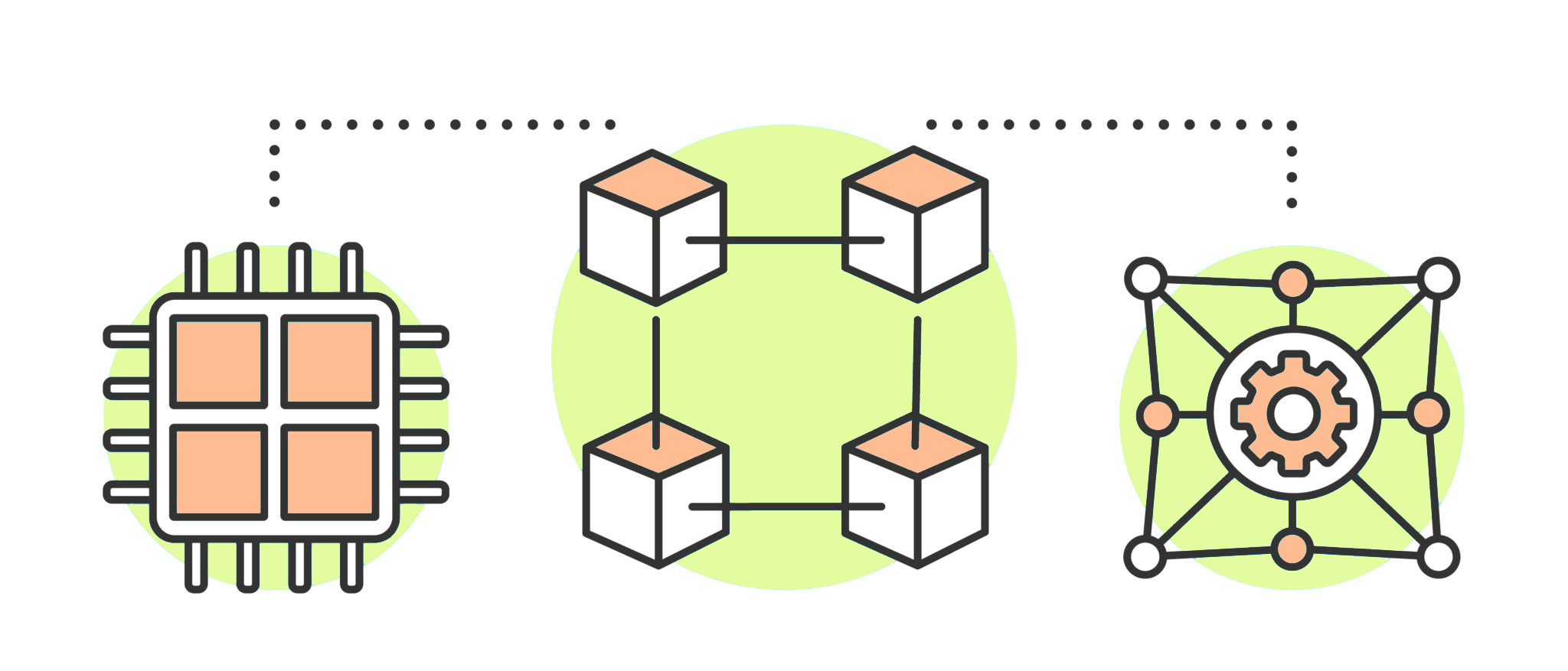In today’s digital age, companies have to find new and innovative ways to stay competitive in their market. One of the most exciting technologies to emerge in recent years is blockchain architecture. Blockchain is a distributed ledger technology that enables decentralised, transparent record keeping, making it an invaluable asset for any organisation looking to maximise their potential. With its secure encryption and consensus-based protocols, blockchain technology has the potential to revolutionise business operations.
What is Blockchain?
Blockchain is a decentralised, digital ledger that records transactions in a secure and transparent manner. It uses cryptographic algorithms to validate and verify every transaction, ensuring that there are no fraudulent activities or double-spending of assets. The data on the blockchain is tamper-proof, meaning that once it is recorded, it cannot be altered without consensus from the network’s participants.
One of the most significant advantages of blockchain technology is its transparency. Every participant has access to the same information and can view all transactions on the network. This makes it easier for businesses to track their assets’ movement through the supply chain, reducing fraud and increasing efficiency. Additionally, blockchain reduces transaction costs by eliminating intermediaries such as banks or payment processors.
In summary, Blockchain technology offers numerous benefits for companies looking to innovate their architecture. From increased transparency to lower costs and greater security measures in place – this innovative technology can help unlock growth opportunities for businesses across many sectors. By leveraging blockchain capabilities like smart contracts or decentralised applications (dApps), organisations can streamline complex processes while also improving their bottom line metrics over time.
Wish to make a career in the World of SAP MDG? Then Start with SAP MDG Training !
Benefits of Blockchain Architecture
Blockchain architecture offers numerous benefits to companies that adopt it. Firstly, the immutable and tamper-proof nature of blockchain technology ensures data integrity and security. The decentralised architecture ensures that no single entity controls the network, making it resistant to attacks and breaches.
Secondly, blockchain technology enables faster transaction processing times and reduces costs associated with intermediaries such as banks or payment processors. This translates into a more efficient system for businesses as they are able to complete transactions faster without incurring high fees.
Finally, blockchain technology can facilitate better transparency and accountability within supply chains by providing an auditable trail of all transactions. This is particularly useful for businesses operating in industries where transparency is highly valued such as food production or luxury goods.
In summary, adopting innovative blockchain architecture has significant benefits for companies seeking to improve their security, efficiency, and transparency while reducing costs associated with third-party intermediaries.
Become a Master of Pega by going through this HKR Pega Training !
Implementing Blockchain in Your Company
Blockchain technology has been making waves in various industries, from finance to healthcare, and it’s no surprise that businesses are starting to explore its potential benefits. One of the main advantages of blockchain is its ability to improve transparency and security in data management. By utilising blockchain architecture, companies can ensure that their transactions are secure, tamper-proof, and transparent.
One way that businesses can implement blockchain is by using it for supply chain management. With blockchain technology, companies can track every step of their product’s journey from production to delivery. This not only improves efficiency but also reduces the risk of fraud or counterfeit products entering the market.
In addition to this, blockchain can also be used for identity verification purposes. Companies can use it as a form of digital ID verification for employees or customers alike. This helps reduce fraudulent activities within the organisation and also ensures regulatory compliance with data privacy laws like GDPR (General Data Protection Regulation). Overall, implementing blockchain technology into your company’s operations could unlock new levels of potential while ensuring increased security and transparency across all aspects of your business processes.
Challenges & Complexities
One of the biggest challenges in implementing blockchain architecture is ensuring that it is secure and tamper-proof. Blockchain technology relies on a distributed network of nodes to validate and record transactions, which makes it inherently resistant to hacking attempts. However, there have been instances where vulnerabilities in smart contracts or centralised exchanges have allowed hackers to steal millions of dollars worth of cryptocurrency. As such, companies must work closely with experienced blockchain developers and security experts to design robust systems that are resistant to cyber threats.
Another complexity associated with blockchain architecture is scalability. As the number of users on a network grows, so does the demand for computational power and storage space required to maintain the ledger. This can lead to slower transaction processing times and higher fees for users. To address this issue, companies are exploring solutions like sharding (splitting up data across multiple servers) or off-chain processing (moving some transactions off the main blockchain).
Finally, regulatory compliance remains a major challenge for companies looking to leverage blockchain technology. Different jurisdictions around the world have varying levels of acceptance towards cryptocurrencies and decentralised systems. Some countries have banned them outright while others are actively encouraging their adoption. Companies must navigate these legal complexities carefully as they develop their blockchain-based products or services.
Challenges Overcome with Innovative Thinking
Blockchain technology has the potential to revolutionise the way businesses operate, but implementing it is not without its challenges. The biggest challenge is ensuring that blockchain architecture aligns with a company’s existing systems and processes. This requires innovative thinking to develop solutions that integrate blockchain technology without disrupting established operations.
Another challenge of implementing blockchain is overcoming security concerns. Blockchain technology relies on cryptography to secure transactions, but there are still potential vulnerabilities that need to be addressed. Innovative approaches such as multi-layered security protocols and decentralised authentication can help mitigate these risks and ensure the integrity of the system.
Finally, there is the challenge of scaling blockchain solutions to meet the needs of large organisations. As more companies adopt this technology, it becomes increasingly important to find innovative ways to manage network congestion and maintain transaction speeds. Solutions such as sharding and sidechains offer promising options for addressing these issues and unlocking the full potential of blockchain for businesses of all sizes.
Takeaways from Successful Experiences
The implementation of blockchain technology within a company can be a game-changer, but there are certain takeaways from successful experiences that need to be considered. Firstly, it is important to have a clear understanding of the problem that needs to be solved and how blockchain technology can provide a solution. This requires in-depth research and analysis before any implementation.
Secondly, successful companies have shown that collaboration between various departments and individuals is crucial for success. Blockchain architecture involves multiple stakeholders, and each one has a unique role to play in its implementation. Ensuring effective communication and coordination between these stakeholders is critical for success.
Lastly, it is essential to have an agile approach when implementing blockchain architecture. This means being flexible enough to adapt as the project progresses and making changes whenever necessary based on feedback from users. Successful companies understand that this technology is still evolving, so they must remain open-minded throughout the process. By embracing these takeaways from successful experiences, your company can unlock its potential with innovative blockchain architecture.
Conclusion:
In conclusion, blockchain technology is a game-changer for businesses. The innovative architecture of blockchain allows companies to store and share information securely and efficiently, without the need for intermediaries. This not only reduces costs but also eliminates the risk of fraud and hacking.
Furthermore, incorporating blockchain into your business model can open up new opportunities for growth and expansion. By leveraging decentralised networks and smart contracts, you can streamline operations, improve transparency, and enhance customer trust.
Overall, it’s clear that blockchain architecture has enormous potential to revolutionise the way businesses operate. As more companies embrace this technology, we can expect to see even greater innovation in the years ahead. So if you haven’t already started exploring how blockchain could benefit your organisation, now is the time to do so!
Author Bio:
Sai Chinnu is a tech-savvy worker working as a Research Analyst . He is passionate about researching various technologies ,startups, and dreams big to accomplish varying goals. He is expert in delivering content on the market demanding technologies like Pega , VMWare, SAP IBP, Webmethods, SCCM, SAP MDG etc.


